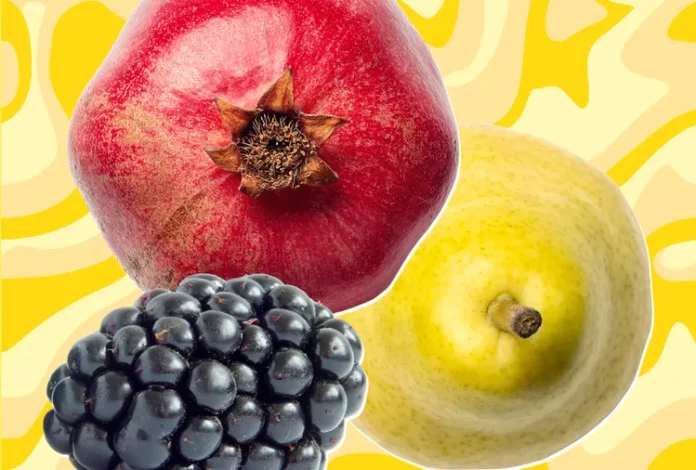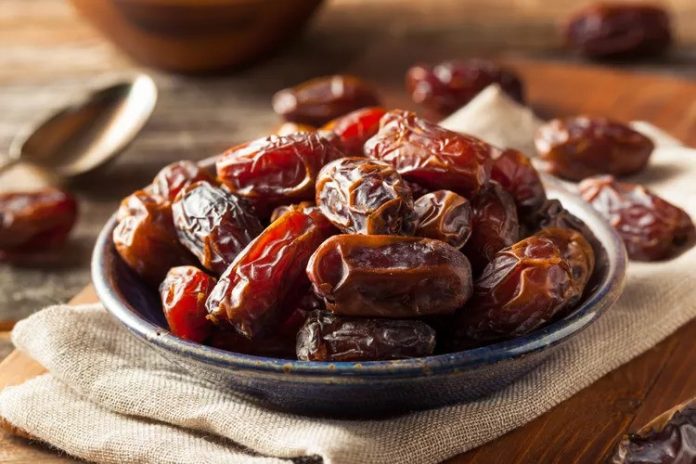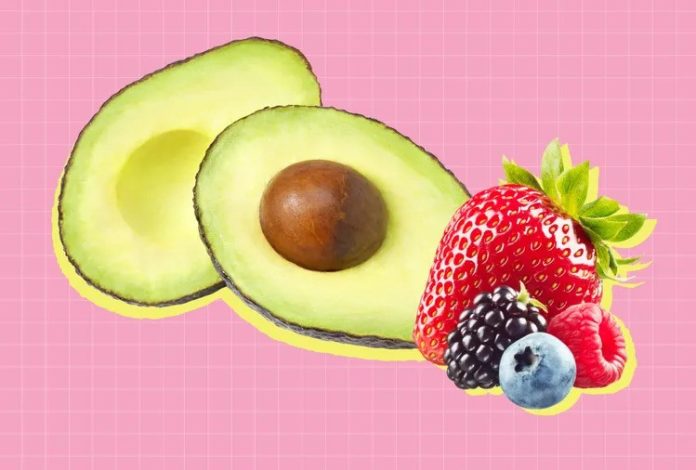5 Fruits with More Fiber Than a Bowl of Oatmeal, According to a Dietitian
Almost all of us could use more fiber. Even though we’re supposed to consume 28 to 34 grams of fiber a day, fewer than 1 in 10 of us actually do it (yikes!). That doesn’t just spell trouble for our digestive health. Fiber also helps protect against weight gain and can help reduce the risk of a long list of chronic illnesses, including type 2 diabetes, heart disease and cancer.
Of course, whole grains like oatmeal can help. For instance, a half-cup of dry oats provides 4 grams of fiber. But did you know that some fruits contain even more fiber than a bowl of oatmeal? Plus, fruit is jammed with vitamins, minerals and antioxidants. If you’re wondering how much fruit you should eat, the USDA recommends roughly 2 cups per day for women and 2½ cups for men (if you’re a fan of dried fruit, ½ cup of dried fruit equals 1 cup of fresh).
- Avocados
1 avocado = 10 grams fiber
You may think of avocados as a vegetable, but they’re actually a fruit. Green silky avocados are so versatile and delicious that you can use them in almost all kinds of recipes, from salads to smoothies to guacamole and more. No wonder they’re so popular! Between 2000 and 2020, global avocado consumption tripled from 6 billion pounds to 18 billion pounds.
Healthwise, avocados may be best known for their heart-friendly fats. But their fiber may be equally as important for your health, particularly gut health. For instance, research reveals avocados’ fiber may encourage the growth of good gut bacteria. This, in turn, may lead to the production of compounds called short-chain fatty acids that nourish your gut and protect it from inflammation.
- Blackberries
1 cup = 8 grams fiber
All berries are loaded with fiber, but blackberries are off the charts. That’s not the only reason to love them, though. Blackberries are also chock-full of nutrients and health-promoting compounds, including antioxidants such as anthocyanins, ellagitannins, flavonols and flavanols.9 These powerful compounds help disable disease-causing free radicals linked to illnesses like heart disease and cancer.
In addition, blackberries’ ample vitamin C (roughly a third of your daily requirement per cup) provides even more antioxidant action. Blackberries’ vitamin C also happens to enhance iron absorption. So, adding a giant handful of blackberries to your oatmeal can help you soak up more of its iron and give you a fiber bump in the process.
- Raspberries
1 cup = 8 grams fiber
Like blackberries, raspberries are among the highest-fiber fruits. They’re also loaded with protective anthocyanins, flavanols, flavonols and ellagitannins. Combined, these may have potent disease-preventing properties. Consider the findings of one study that focused on the impact of raspberry consumption on diabetes and prediabetes. Researchers concluded that eating 1 to 1½ cups of raspberries daily may have beneficial effects on blood glucose, insulin and cholesterol in people at risk for chronic disease.
- Pears
1 medium pear = 6 grams fiber
Apples may be a quick, convenient, grab-on-the-go fruit. But don’t forget about pears. One pear delivers roughly 20% of the Daily Value for fiber. That’s 30% more than the roughly 4 grams of fiber in the average apple. And if constipation is an issue, pears can provide a natural solution. These sweet, juicy fruits are rich in sorbitol, a sugar alcohol that has a natural laxative effect.
- Pomegranates
1 cup pomegranate = 7 grams fiber
These juicy, ruby-red fruits may resemble apples from the outside, but they’re actually giant berries. While their thick, inedible skin is a no-go, their fleshy arils (which are botanically considered a whole grain, by the way) are packed with fiber. Like their berry cousins, pomegranates are nutrition powerhouses. They’re rich in phytochemicals, including anthocyanins, tannins and flavonoids, which have been shown to exert antioxidant, anti-inflammatory and anticancer properties and protect against heart disease. Research also reveals pomegranates contain compounds called polyphenols that help promote the growth of healthy gut bacteria, so they’re a win for gut health, too.











